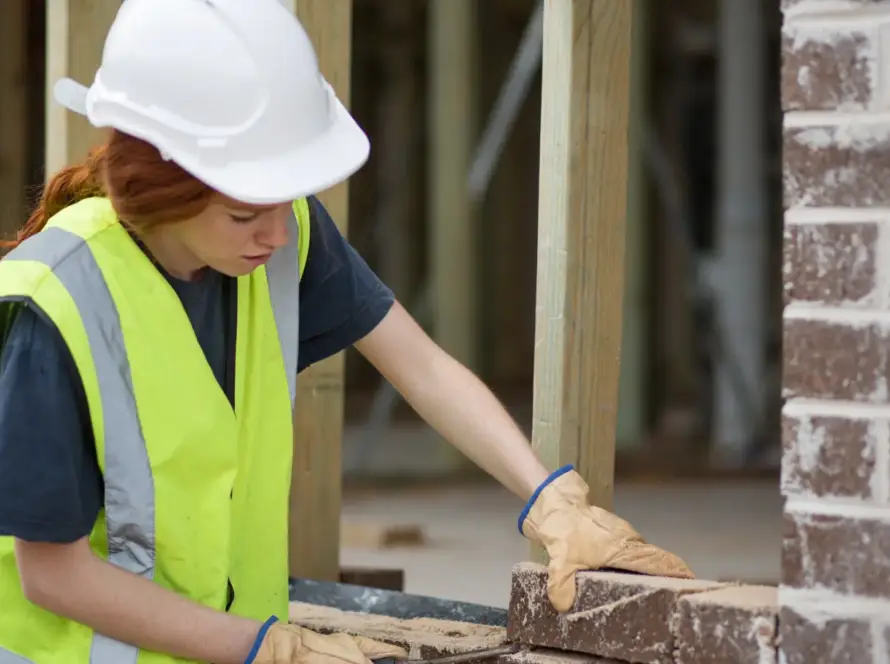What does it mean to be in a committed relationship?
Being in a committed relationship generally means that both partners have agreed to work towards building a long-term, exclusive connection. It involves a level of dedication and willingness to make the relationship a priority.
In a committed relationship, both partners are emotionally invested in each other, and they are committed to each other’s well-being. They prioritize each other’s needs and wants, and they work together to overcome any challenges that arise in the relationship.
Commitment in a relationship also involves trust, honesty, and open communication. Both partners are willing to share their feelings, thoughts. And also experiences, with each other in a way that fosters a deep sense of intimacy and understanding.
Overall, being in a committed relationship means that both partners are willing to put in the effort to make the relationship work. With the goal of building a strong and lasting connection with each other.
Is a committed relationship the same as an exclusive relationship?
Not necessarily. While committed relationships often involve exclusivity, they don’t always have to.
A committed relationship generally refers to a relationship where both partners are dedicated to each other. And have agreed to work together to build a meaningful connection. This can include various aspects such as emotional support, physical intimacy, and shared experiences.
On the other hand, an exclusive relationship refers to a relationship where both partners have agreed to only see each other romantically. And to not date or be intimate with other people.
So while exclusivity is often a part of committed relationships, it’s not always a requirement. And some couples may choose to have an open or non-exclusive relationship while still being committed to each other.
I know this might sound confusing. But try to think of it this way: a committed relationship is a relationship where the partners have agreed and are determined to be in a relationship and make it work. Whether they see other people as well or not. They might be in an open relationship or open marriage.
Whereas an exclusive relationship is where the partners have agreed to only date each other.
Again, an exclusive relationship can be a part of a committed relationship, but it is not necessary.
How do you know you’re in a committed relationship?
Most people will know if they are in a committed relationship or not. However, if you’re wondering or just want to be sure that you are in one, read the below signs and see how many of these you have and feel in your relationship.
- You prioritize each other: You make each other a priority in your lives. And you’re willing to make sacrifices for the relationship.
- You communicate openly: You feel comfortable talking to each other about your feelings. And you’re willing to listen to each other’s perspectives.
- You trust each other: You trust that your partner has your best interests at heart. And you feel secure in the relationship.
- You support each other: You’re there for each other through thick and thin. And you provide emotional support when your partner needs it.
- You have common goals: You share similar goals and values. And you’re both committed to working towards a shared future together.
- You make time for each other: You prioritize spending quality time together, even when life gets busy.
- You’re exclusive: You’ve agreed to only see each other romantically, and you’re committed to being monogamous.
- You’re comfortable being yourselves: You’re able to be your authentic selves around each other, without fear of judgment or rejection.
- You’re committed to working through challenges: You’re willing to work through any issues that arise in the relationship. Rather than giving up at the first sign of trouble.
- You feel a deep emotional connection: You feel a strong emotional bond with your partner. And you’re committed to nurturing and strengthening that connection over time.
You don’t need to have all 10 signs. But if you have a vast majority of them and are already working on the rest… You are in a committed relationship that is becoming stronger.
How do you know if you’re ready for a committed relationship?
Commitment is such a difficult thing in this day and age, for more and more people.
There are certain people who are open and honest about NOT wanting to be in a committed relationship. And that’s ok. It’s ok if we want different things as long as we’re honest and upfront about them.
But if you’re wondering whether you are ready for a committed relationship, read through these signs. They will help you realize whether you are ready or not.
- You’re emotionally ready: You’ve taken the time to work through any past emotional issues or traumas. And you feel emotionally stable and secure in yourself.
- You have a clear idea of what you want: You have a good idea of what you’re looking for in a relationship. And you’re clear on your values and priorities.
- You’re comfortable being vulnerable: You’re able to open up and be vulnerable with someone. And you’re willing to take the risk of being hurt in order to build a deeper connection.
- You’re ready to commit time and energy: You’re willing to make the relationship a priority. And you’re prepared to invest time and energy into building a strong and healthy connection.
- You’re not looking for someone to “complete” you: You’re happy and fulfilled in your life. And you’re looking for a partner to share that with, rather than someone to fill a void.
- You have a healthy self-esteem: You have a positive self-image and feel confident in yourself. Which can help you maintain a healthy and positive relationship.
- You have a good support system: You have friends and family who support you. And can provide emotional support and guidance as needed.
Overall, being ready for a committed relationship means that you’re emotionally and mentally prepared to make the necessary investment in building a long-term, meaningful connection with someone.
For example, when I broke up with my last boyfriend, a couple of years before meeting my husband, Robert, I realized that I wanted to spend some time alone.
Once I analyzed my past relationships I’ve gotten to the conclusion that I actually wasn’t ready to be truly committed to a relationship and a person. And the reason why I was entering into relationships with the wrong people for me, was because I knew, deep down, that it won’t last anyway.
I’ve then decided to take some time for myself, to truly work on myself. And also take care of my own mental and physical wellbeing.
It was only when I truly felt ready, was that the miracle happened and I met Robert, my husband, through some very weird circumstances.
And the signs I’ve written about above are the exact ones that I felt when I felt ready for more love and for an amazing relationship.
What are the benefits of being in a committed relationship?
Now, some of you might wonder what are the benefits of being in a committed relationship?
Considering that with the girl boss era and with women being more focused on careers than family, more women learn to truly be happy by themselves.
And whilst that is amazing, and such a great advancement, there still are a few reasons why you should still want to be in a committed relationship, and here they are:
- Emotional support: A committed partner can provide emotional support during difficult times and can help you navigate through life’s challenges.
- Improved mental health: Committed relationships have been linked to improved mental health, including reduced stress and anxiety.
- Shared experiences: Being in a committed relationship means that you have a partner to share life’s experiences with, which can make those experiences more meaningful.
- Increased sense of security: Having a committed partner can provide a sense of security and stability in life.
- Improved physical health: Studies have shown that being in a committed relationship can lead to improved physical health and a longer life expectancy.
- Greater happiness: Committed relationships have been linked to greater overall happiness and life satisfaction.
- Financial benefits: Being in a committed relationship can lead to financial benefits, including shared expenses and potentially lower living costs.
- Increased intimacy: A committed relationship can allow for a deeper level of intimacy and emotional connection with your partner.
- A sense of belonging: Being in a committed relationship can provide a sense of belonging and community, as you build a life together with your partner.
Again, this is not to say that you cannot have these on your own, or when you’re not in a committed relationship. You can certainly still feel these.
However, when you feel these in a committed relationship, they are at a next level. Usually a higher one.
So if you feel happy, and your physical health is already good, in a committed relationship they will get to even higher levels.
How do you maintain a strong and healthy committed relationship?
Maintaining a strong and healthy committed relationship takes effort and dedication from both partners. Here are some tips for keeping your relationship strong and healthy:
- Communication: Open and honest communication is essential for maintaining a healthy relationship. Make time to talk to each other regularly, and be willing to listen and share your thoughts and feelings.
- Trust: Trust is a cornerstone of any healthy relationship. Work to build trust with your partner by being reliable, consistent, and transparent in your actions and intentions.
- Quality time: Make time for each other regularly, even when life gets busy. This can include date nights, weekend getaways, or simply spending quality time at home together.
- Respect: Treat your partner with respect and kindness, and be willing to compromise when needed.
- Support: Be there for your partner during both the good times and the bad. Offer emotional support, and be willing to lend a helping hand when needed.
- Intimacy: Maintain a physical and emotional connection with your partner through intimacy, whether that’s through physical touch, quality time together, or sharing your deepest thoughts and feelings.
- Forgiveness: No relationship is perfect, and there will be times when mistakes are made. Be willing to forgive and move forward when issues arise.
- Common goals: Work towards shared goals and dreams together, whether that’s building a family, traveling the world, or pursuing shared hobbies and interests.
- Personal growth: Encourage each other to pursue personal growth and development, whether that’s through education, career advancement, or pursuing personal passions.
- Gratitude: Express gratitude for each other regularly, and acknowledge the positive aspects of your relationship. Focus on the things you appreciate about your partner, and let them know how much they mean to you.
Overall, maintaining a strong and healthy committed relationship takes effort, but it’s worth it to build a meaningful and fulfilling connection with your partner.
What should you do if you’re having doubts about your committed relationship?
If you’re having doubts about your committed relationship, it’s important to take time to reflect on your feelings and communicate openly with your partner.
Here are some steps you can take:
- Identify the source of your doubts: Ask yourself what specifically is causing you to feel uncertain or unhappy in the relationship. Is it a particular issue or behavior, or a general feeling of dissatisfaction?
- Communicate with your partner: Share your feelings with your partner in a calm and respectful way. Be specific about what’s bothering you, and listen to their perspective as well.
- Seek support: Consider talking to a trusted friend, family member, or therapist about your feelings. They can offer perspective and support as you work through your doubts.
- Consider couples therapy: If you and your partner are struggling to work through issues on your own, consider seeing a couples therapist to help facilitate communication and work towards resolution.
- Take time to reflect: Take time to reflect on your own needs and desires, and consider what you want in a relationship. Be honest with yourself about whether your doubts are temporary or indicative of deeper issues.
- Be open to change: Be open to making changes in the relationship, whether that means addressing specific issues or reevaluating your long-term goals and priorities.
Ultimately, the key to working through doubts in a committed relationship is open communication, a willingness to listen and make changes, and a commitment to working together towards a resolution.
If you’ve tried all of the above and still have doubts, then it might be time to reconsider the whole relationship. But at least you can rest assured that you’ve tried your best and it just wasn’t meant to be for the two of you.
This will only free you and your current partner to look for the most amazing partners for the both of you.
How do you communicate the fact that you want a committed relationship?
Communicating your desire for a committed relationship can be intimidating, but it’s an important step in building a healthy and fulfilling connection with someone.
Here are some tips for communicating your desire for a committed relationship:
- Be clear and direct: When communicating with your partner, be clear and direct about what you’re looking for. Use “I” statements to express your own feelings and desires, rather than making assumptions about what your partner wants.
For example say things like: I feel that I am ready for a committed relationship, what do you think? Or: What is your take on committed relationships?
- Timing is key: Choose a time when you and your partner can have a calm and uninterrupted conversation. Avoid bringing up the topic in the heat of the moment or during a stressful time.
Deciding whether to be or not in a committed relationship might not come easily to everyone and they might need some time to reflect on it.
And they definitely would not need other people’s opinions or input as they will be in that relationship with you, not others.
So choose your timing wisely.
- Use examples: Give specific examples of what a committed relationship means to you, and what you’re looking for in a partner.
I had this issue a few times when I was dating. I would tell them that I am looking for a serious committed relationship and they would agree.
Unfortunately it took me a bit of time to realize that they actually had no idea what I really meant, and also what that meant for me specifically and what expectations I had of them. Which led to a lot of misunderstandings and arguments and eventually to separation as it started getting bad enough.
So, using very specific and exact examples of what a committed relationship looks and feels like to you will give the other person a much better idea of what you expect from them. And it also gives them the opportunity to let you know. So you will know what their expectations would be too.
In the end helping you both realize whether you want the same things, whether there are things that you’re willing to compromise on, or whether it would be best to go on your separate ways.
- Listen to their perspective: Be open to hearing your partner’s perspective, and ask them how they feel about the idea of a committed relationship. Be willing to listen and compromise as you work towards finding common ground.
This point goes hand in hand with the previous one, where open, honest and precise conversation is key to a committed relationship.
If you truly listen to what they have to say, you can better understand if you’re on the same page or not.
- Be patient: Not everyone is ready for a committed relationship at the same time. Be patient with your partner as they process their own feelings and desires.
Some people might need a bit of time to realize whether they want to be in a committed relationship or not. They might’ve had some bad experiences in the past so now they are taking their time to decide.
Or maybe they just want to be very sure of their own feelings and that the relationship can actually work.
Either way, you can find out more about asking the right questions.
- Be true to yourself: If your partner isn’t interested in a committed relationship, it’s important to be true to yourself and your own needs. It may be necessary to move on and find someone who is looking for the same kind of connection.
This is one of the hardest steps to take. And this has to do a lot with our own sense of self-worth.
I used to have this deep rooted belief that I am not good enough if a guy was not ready to be in a committed relationship with me. It was years later that I learned that people have their own reasons why they might not want to be in a relationship.
And sometimes, those reasons have nothing to do with me.
Remember, communication is key in any relationship. Be honest and open with your partner about your desires, and be willing to work together to build a strong and committed connection.
Here are 5 cute ways to show your commitment to your partner:
- Surprise gestures: Surprise your partner with small acts of kindness like a handwritten note, a thoughtful gift, or their favorite treat. These gestures show that you are thinking about them and care about their happiness.
- Future planning: Talk about your future plans with your partner and include them in your vision. Plan trips or events that you both can look forward to, and talk about your hopes and dreams for the future.
- Personalized gifts: Give your partner a gift that is personalized to their interests or hobbies. For example, if they love gardening, buy them a plant or some new gardening tools. This shows that you pay attention to their interests and are invested in their happiness.
- Flowers and jewellery: Surprise your partner with flowers or a piece of jewellery that holds special meaning for both of you. This could be a birthstone or a symbol that represents your relationship.
- Quality time: Spend quality time with your partner doing something you both enjoy. This could be going on a hike, watching a movie, or cooking dinner together. Making time for each other is a cute way to show your commitment and strengthen your bond.
What are some common challenges in a committed relationship and how to overcome them?
Committed relationships bring their own set of challenges, but you can overcome many challenges with open communication, a willingness to compromise, and a commitment to working through issues. Here are some common challenges in a committed relationship and ways to overcome them:
- Communication issues: Communication is key in any relationship, but it can be a challenge to effectively communicate with your partner. To overcome this, try to actively listen to your partner, avoid making assumptions. And express your feelings in a calm and respectful way.
- Differences in expectations: It’s common for partners to have different expectations for the relationship. To overcome this, have an open and honest conversation about your expectations, and work together to find common ground.
- Conflicts over money: Money is often a source of tension in relationships. To overcome this, establish a shared budget and financial goals, and communicate openly about any concerns or issues that arise.
- Trust issues: Trust is an essential component of any committed relationship. If trust has been broken, it’s important to have an open and honest conversation about what happened. And work together to rebuild trust.
- Sexual issues: Differences in libido, preferences, or desires can create tension in a relationship. To overcome this, communicate openly about your sexual needs and desires. And work together to find a solution that works for both partners.
- Balancing individual needs and the relationship: It can be a challenge to balance your own individual needs with the needs of the relationship. To overcome this, communicate openly with your partner about your needs and priorities, and find ways to compromise and support each other.
Remember, challenges are a natural part of any committed relationship, but with communication, understanding, and a commitment to working through issues together, many challenges can be overcome.
How do you balance individual needs with the needs of the relationship?
Balancing individual needs with the needs of the relationship poses a challenge in any committed relationship, but ensuring both partners feel heard, understood, and supported is important. Here are some tips for finding a balance:
- Communicate openly: Communication is key in any relationship. Talk openly and honestly with your partner about your individual needs and the needs of the relationship.
- Prioritize self-care: Taking care of yourself is important for both your own well-being and the health of the relationship. Make time for activities that bring you joy, and communicate your needs to your partner.
- Practice empathy: Empathy is essential for understanding your partner’s perspective and finding common ground. Put yourself in your partner’s shoes and try to understand their needs and priorities.
- Compromise: Finding a compromise that works for both partners can help balance individual needs and the needs of the relationship. Look for ways to meet both sets of needs, and be willing to make adjustments as needed.
- Set boundaries: Boundaries can help both partners feel respected and supported. Communicate your boundaries to your partner, and be willing to respect their boundaries as well.
Remember, finding a balance between individual needs and the needs of the relationship is an ongoing process that requires open communication, empathy, and a willingness to compromise. By working together, both partners can feel heard, understood, and supported in the relationship.
What should you do if you’re considering ending a serious relationship?
Ending a committed relationship can be a difficult and emotional decision.
If you’re considering ending a committed relationship, here are some steps you can take:
- Take time to reflect: Before making any decisions, take time to reflect on your feelings. And the reasons why you’re considering ending the relationship. Consider talking to a trusted friend or therapist to help you process your emotions and gain clarity.
- Communicate openly: If you’ve decided to end the relationship, communicate openly and honestly with your partner. Be respectful, compassionate, and clear in your communication.
- Give space: If your partner needs space after the breakup, respect their boundaries and give them the space they need. Avoid contact unless necessary, and be mindful of their feelings.
- Seek support: Ending a committed relationship can be emotionally challenging. And it’s important to seek support from friends, family, or a therapist.
- Take care of yourself: After a breakup, it’s important to prioritize self-care. Make time for activities that bring you joy, and focus on your own well-being.
Remember, ending a committed relationship is a difficult decision, but it’s important to prioritize your own well-being and happiness. By communicating openly, seeking support, and prioritizing self-care, you can navigate the process with compassion and clarity.
I hope the information in this article helped you the way it helped me in learning more about what committed relationships actually are, how to deal with them, and how to know if you’re ready for one or not.











